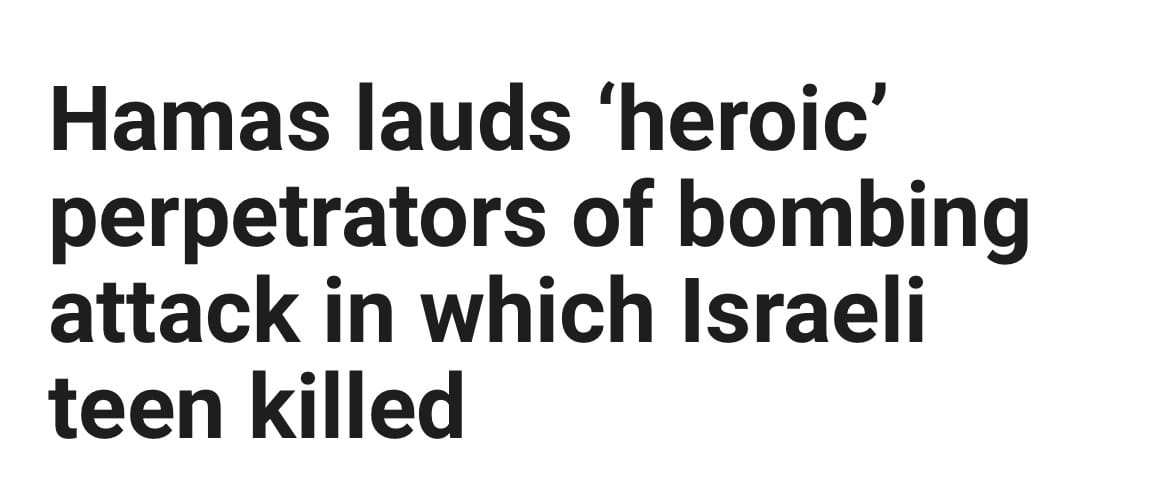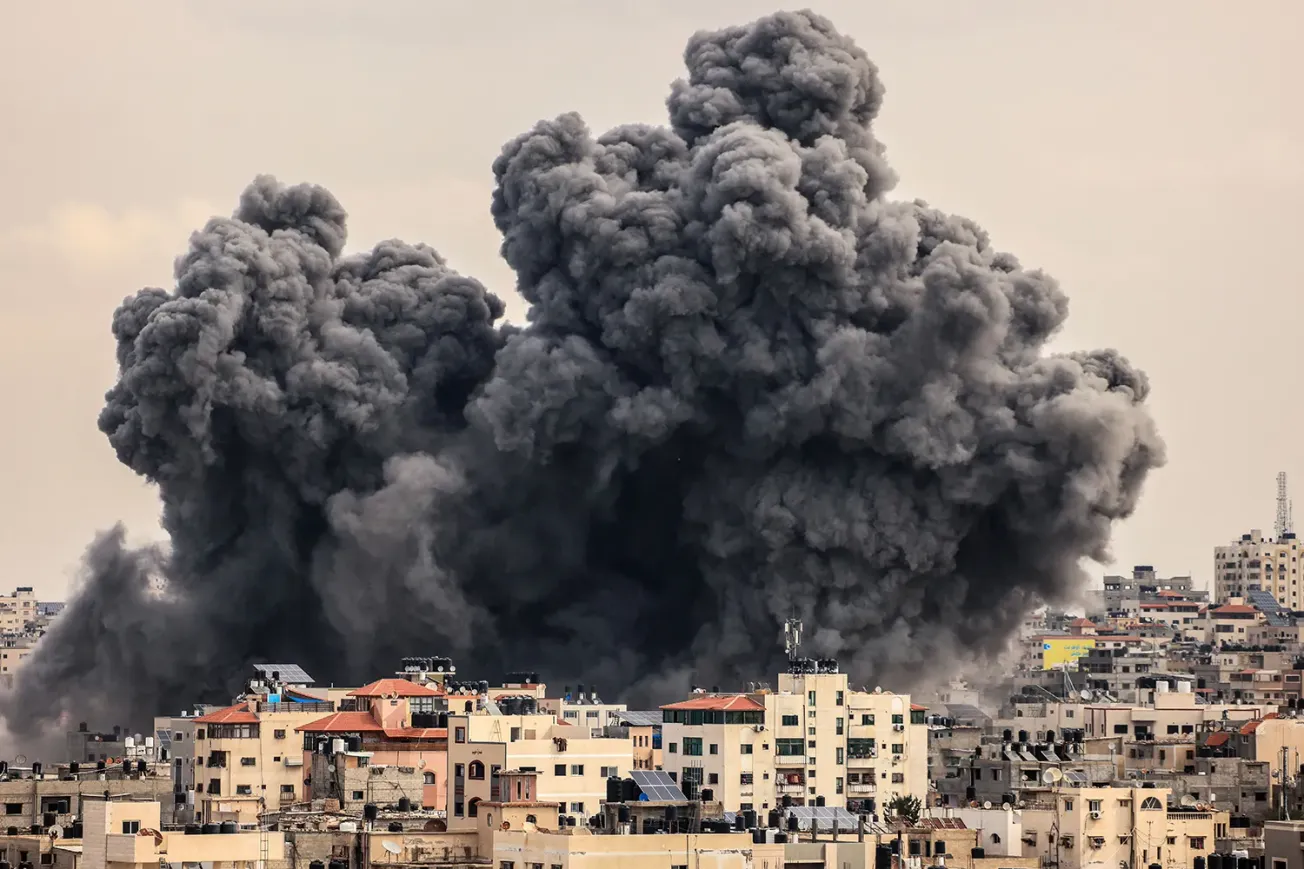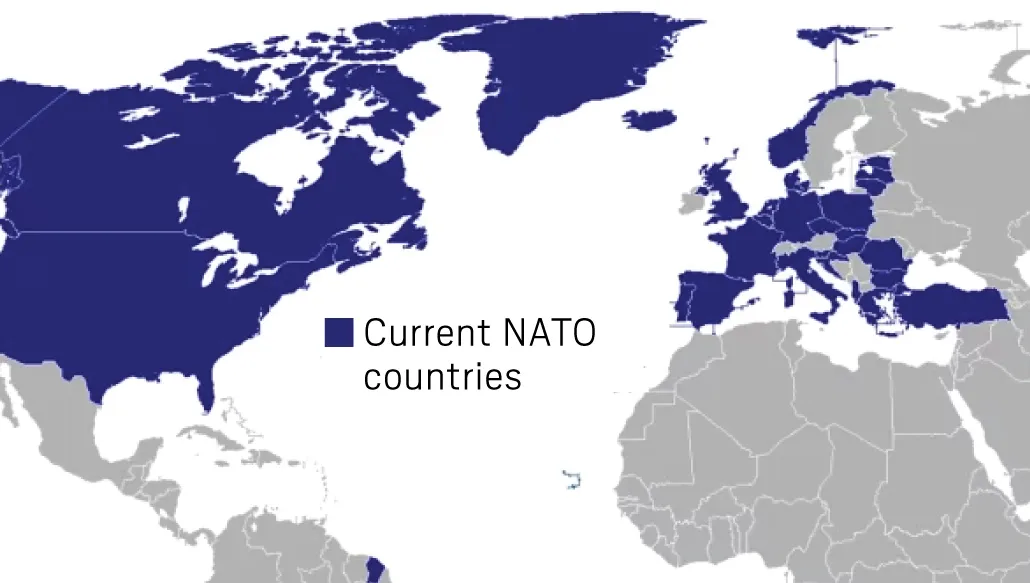Table of Contents
Alex Berenson
Alex Berenson is a former New York Times reporter and the author of 13 novels, three non-fiction books, and the Unreported Truths booklets. His newest book, PANDEMIA, on the coronavirus and our response to it, was published in November 2021.
(A side note: Many of you took issue with the “hammers and knives” line in Part 1. I didn’t mean to imply the Hamas attackers used only those weapons. Many had assault rifles. But by Western military standards, they were crudely armed. They depended on surprise – and the fact they were attacking civilians. A single Marine battalion would have crushed them.)
Part 2 of 2
After the most vicious terrorist attack in its history, Israel faces what seems to be a painful choice.
Not responding is not an option, of course.
The calls for ceasefire from “progressives” like Rep. Alexandria Ocasio-Cortez are the purest form of crocodile tears. I almost can’t believe I have to write this, but Hamas, the terrorist group that controls the Gaza Strip, cannot be allowed to kill nearly a thousand civilians without consequence.
But what response should Israel pursue? Can it preserve hope of a wider regional peace while still bringing Hamas to heel?
If not, what is more important – invading Gaza and destroying Hamas at any cost? Or punishing it with retaliatory strikes but trying to tamp down risks of a larger war?
Also, Hamas has taken over 100 hostages. What about them? Should Israel consider trying to trade for them?
My answers may surprise you.
Hamas loves killing Jews. It always has. I’m not exaggerating. The group’s original 1988 charter explains that The Day of Judgment will not come about until Muslims fight the Jews (killing the Jews) when the Jew will hide behind stones and trees. The stones and trees will say O Muslims, O Abdulla, there is a Jew behind me, come and kill him…
(In 2017, Hamas issued a new charter removing that reference but still demanding “the full and complete liberation of Palestine, from the river to the sea — ” i.e. the Jordan River and Mediterranean Sea. Those are the boundaries of the territory Israel and Palestine share, so Hamas is explicitly demanding Israel be wiped off the map.)
(Not all heroes wear capes)

(SOURCE)
Still, as much as Hamas loves killing Jews, Saturday’s attack wasn’t just about killing Jews.
For months, Israel and Saudi Arabia have talked over a peace deal. Such a deal would be a major threat to Hamas and Iran, its most important backer.
Mohammed bin Salman, the Saudi ruler, regards Iran as a bigger threat than Israel. As he should. Iran has 90 million people, a desperate desire for nuclear weapons, and a long-standing enmity with Saudi Arabia.
A Saudi-Israel agreement would transform the Middle East, and not just by opening economic connections between the region’s two richest major countries. It would show that Saudi Arabia, the keeper of Mecca – Islam’s spiritual heart – regards the Jewish state as legitimate.
But the harder Israel hits Gaza, the harder it will be for the Saudis to make a deal.
I doubt the Saud family cares much about the Palestinians, who have been nothing but trouble for generations. Indeed, Saudi elites are happy enough to sup (and invest) with Jews.
But the only real threat the al-Sauds have faced to their rule in the last century came in 1979, when Puritan Muslim rebels seized the Grand Mosque in Mecca. The militants believed the al-Sauds were too liberal – no surprise, given how wealthy Saudis act behind closed doors. The mosque occupation lasted two weeks. The Saudis regained control only after a bloody counterattack, which itself ran contrary to Islamic law that forbids violence at the Grand Mosque.
Ever since, the Kingdom of Saudi Arabia has made sure to keep its friends close and its clerics closer. It has funded hyper-conservative madrassas, Islamic schools, across the Muslim world. It and other Arab countries have fed their people a diet of anti-Semitic propaganda (propaganda the Saudis, at least, are finally phasing out).
The propaganda has worked. Too well. The “Arab street” – the hundreds of millions of poor Arabs who live in a three-thousand-mile-band from Marrakesh to Baghdad – despises Israel. Their anger means that Arab leaders must tread very carefully when they deal with the Jewish state. (It is somewhat stunning Mohammed bin Salman is even negotiating with Israel. He must really be worried about Iran.)
The calls for “ceasefire” already show where public opinion is headed after Saturday’s attacks. Even with victims still being buried, Israel is being warned not to take action against Gaza and its 2.3 million civilian occupants.
(“Unprompted Attacks on Gaza.” Yes, Forbes deleted this tweet. Too late.)

The argument that Gaza is filled with innocents and cannot be touched ignores the reality that most Palestinian civilians in Gaza support Hamas’s rule – and violence against Israel.
A 2021 poll found a majority of Palestinians in both Gaza and the West Bank believed Hamas is “most deserving of representing and leading the Palestinian people” – a rise in support that followed a Hamas campaign of rocket attacks against Israel.
Further, Hamas has entwined its forces with Gaza’s civilians in a way that all-but-ensures that Israel cannot attack them without causing massive casualties. The Washington Post reported matter-of-factly nine years ago that a Gaza hospital had become “a de facto headquarters for Hamas leaders.”
Thus any Israeli attacks sharp enough to damage Hamas will surely kill enough civilians in Gaza to inflame the Arab and Muslim world (along with all the leftists who already hate it).
So.
So what seems like a stark choice for Israel is really no choice at all.
The world will hate Israel no matter what it does.
As Hamas showed yet again on Saturday, the world is not a friendly place for Jews who can’t defend themselves.
All the peace treaties in the world don’t mean anything unless Israel can guarantee its own security. Its conventional weapons go a long way toward ensuring that countries like Jordan and Egypt won’t attack it. Its deeper security comes in the form of a nuclear arsenal that spells the destruction of Amman and Cairo if Arab armies take Tel Aviv. No one talks about this. No one needs to.
Nor does Saudi Arabia threaten Israel’s existence. Saudi Arabia has not attacked Israel since the initial 1948 Arab League war on Israel.
No, the real threat to Israel these days comes from Hamas – and Iran. For fifteen years, Israel has tried to manage Hamas, precisely because it does not want to have to invade Gaza. But Hamas cannot be managed.
Iran is doing everything possible to create its own nuclear arsenal and negate Israel’s. And Hamas believes Israel is soft and weak and ripe for slaughter. The Hamas attack Saturday had an element of sexual brutality that cannot be papered over: we will take your women. Can you stop us? Are your men man enough to stop us?
All the artillery and bombs in the world will not answer that question. Israel cannot rely only on distance weapons and advanced technology this time, and not just because doing so will give Hamas the visuals it wants.
It must send Jewish soldiers into Gaza. It must do so knowing that more than a few will die. Maybe its soldiers do not need to kill every Hamas commander. Maybe they do not destroy every building in Gaza where Hamas fighters are based.
But they need to kill and destroy so many that Hamas ceases to exist as a threat. Israel must prove it has not lost its will to fight.
Bitterest of all – I don’t think Israel can make a deal for the hostages either. Weakness begets weakness. Trading for hostages begets hostage-taking.
Losing a peace deal with the Saudis is a bitter pill. But it will be around in five years, or ten, or twenty. Israel has survived just fine without it. It can no longer survive with Hamas controlling a territory of more than 2 million people on its border.
Israel officials seem to understand this dynamic. As the Times wrote yesterday:
As an Israeli national security official said in the story:
“It’s a huge mistake that I did, believing that a terror organization can change its DNA. I thought that Hamas… [had become] more responsible, and I learned in the hard way that it is not so, that a terror organization is a terror organization.”
Hamas tore a hole in Israel on Saturday. It may even have succeeded in denying Israel peace with Saudi Arabia.
But the price must be its extermination.









